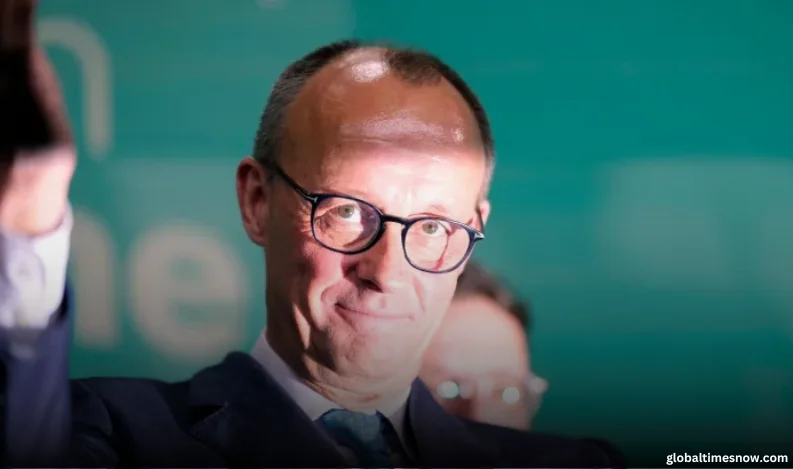Berlin: Germany’s political landscape saw a dramatic shift as the conservative alliance, led by Friedrich Merz, secured victory in the national elections, according to exit polls released on Sunday. The results signal a significant change in leadership, with Merz poised to become the next German Chancellor.
The elections also saw a historic surge for the far-right Alternative for Germany (AfD), which, backed by prominent figures such as tech billionaire Elon Musk, secured second place with a record vote share.
Trump Hails German Election Results
US President Donald Trump welcomed the outcome, celebrating what he called the German people's rejection of the “no common sense” policies of Chancellor Olaf Scholz’s centre-left government.
"Much like the USA, the people of Germany got tired of the no common sense agenda, especially on energy and immigration, that has prevailed for so many years. This is a great day for Germany," Trump wrote on Truth Social.
Merz Calls for ‘Real Independence’ from the US
Despite Trump’s support for the conservative win, 69-year-old Merz took a firm stance on reducing Europe’s reliance on the United States. Speaking after his victory, he criticized Washington’s “outrageous” comments during the campaign and drew comparisons to Russian interference in European affairs.
"We are under massive pressure from two sides, and my absolute priority now is to achieve unity in Europe. It is possible to create a strong and independent Europe," Merz said during a roundtable discussion with other leaders.
Previously regarded as a staunch Atlanticist, Merz has now expressed skepticism about the US commitment to European security, stating that Trump’s administration has been "largely indifferent to the fate of Europe."
His priority, he emphasized, is to strengthen Europe’s autonomy step by step, even questioning whether NATO’s current form will continue to serve its intended purpose.
Challenges in Forming a Coalition Government
Despite leading the vote, Merz faces an uphill battle in forming a government. His party, the Christian Democratic Union/Christian Social Union (CDU/CSU), emerged as the largest political bloc but recorded its second-worst post-war result.
With a fractured vote and no clear majority, coalition negotiations are expected to be lengthy and complex.
AfD’s Record-Breaking Performance
The far-right AfD surged to second place, securing 20.5% of the vote, more than doubling its previous election performance. AfD leader Alice Weidel signaled the party’s growing ambition, stating:
"Our hand remains outstretched to form a government. Next time, we will come first."
However, major mainstream parties have ruled out cooperating with the AfD due to its controversial far-right stance, stemming from Germany’s historical rejection of nationalist politics.
Decline of the Left and Centre-Left Parties
The centre-left Social Democratic Party (SPD), led by Olaf Scholz, suffered a crushing defeat, securing only 16.5% of the vote—its worst result since World War II.
Scholz described the outcome as "bitter," as his three-party coalition collapsed under voter dissatisfaction.
The Greens secured 11.8%, while the far-left Die Linke made significant gains among younger voters, receiving 8.7% of the total vote.
Meanwhile, the pro-business Free Democratic Party (FDP) and the newly formed Sahra Wagenknecht Alliance (BSW) struggled to cross the 5% threshold required to enter Parliament.
Voter Turnout Hits Record High
The elections saw an 83% voter turnout, the highest since Germany’s reunification in 1990.
- Male voters leaned towards conservative and right-wing parties.
- Female voters showed stronger support for leftist and progressive parties.
What’s Next for Germany?
With coalition talks set to begin, Merz must navigate difficult political negotiations to form a stable government. A three-way coalition may be necessary, potentially complicating Germany’s ability to lead Europe decisively.
Meanwhile, the rise of the AfD signals a dramatic shift in German politics, with the far-right gaining momentum and eyeing future leadership.
As Germany grapples with economic uncertainty, migration debates, and global geopolitical tensions, the outcome of these elections could reshape Europe’s balance of power in the years ahead.























